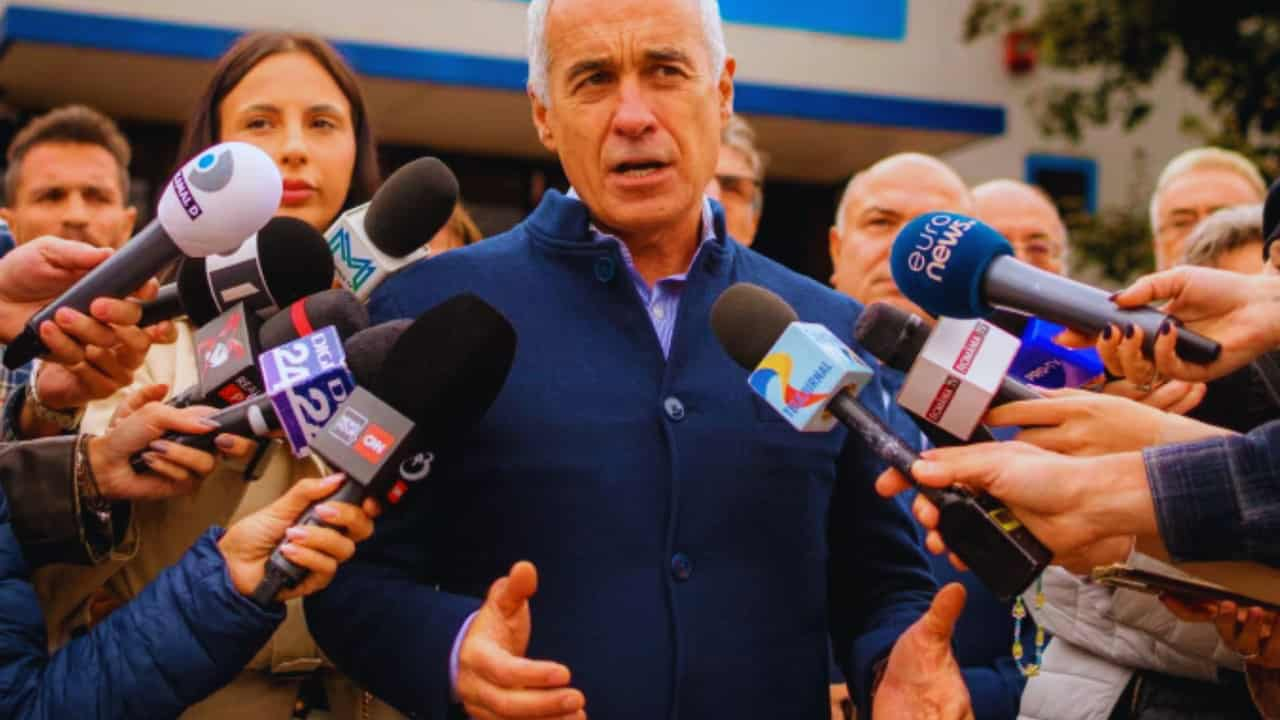Breaking News: Far-Right Candidate’s Surprise Lead Reshapes Romania’s Political Landscape
In a stunning political development that has sent shockwaves through Romania and the European Union, Calin Georgescu, a far-right independent candidate, has taken an unexpected lead in the first round of Romania’s presidential election. With 96% of votes counted, preliminary results show Georgescu securing 22% of the vote, followed by Prime Minister Marcel Ciolacu at 20%.
The emergence of Georgescu, a 62-year-old candidate who conducted much of his campaign through TikTok, has dramatically altered Romania’s political landscape. His rise represents what political analyst Cristian Andrei describes as “a large protest against the establishment.”
Georgescu’s background includes a doctorate in soil science and previous roles in Romania’s environment ministry during the 1990s. From 1999 to 2012, he served as Romania’s representative on the United Nations Environment Program’s national committee. Despite these credentials, his controversial political positions have captured national attention.
The candidate has taken several controversial stances, particularly regarding international relations. He has openly questioned Romania’s membership in NATO and criticized the alliance’s ballistic missile defense shield in Deveselu, which he termed a “shame of diplomacy.” His previous statements praising Russian President Vladimir Putin as one of the world’s “true leaders” have raised concerns among Western allies.
The election, which saw a 51% voter turnout, reflected Romanian citizens’ growing concerns about domestic issues, particularly the rising cost of living. Romania currently has the EU’s highest percentage of citizens at risk of poverty, which may have contributed to Georgescu’s populist appeal.
Elena Lasconi, the center-right candidate, currently holds third place with 18% of the votes, while another nationalist candidate, George Simion, stands in fourth. The unexpected results have particularly impacted Romania’s younger voters, like Ecaterina Nawadia, a 20-year-old first-time voter, who expressed concern about the leading candidate’s positions.
Political science professor Sergiu Miscoiu from Babes-Bolyai University has raised the possibility of Russian interference in the election, citing the significant disparity between pre-election polls and the actual results, along with Georgescu’s stance on Ukraine.
While largely symbolic, Romania’s presidential role carries significant influence over foreign policy decisions. This becomes particularly crucial given Romania’s strategic position as a NATO member sharing a 650-kilometer border with Ukraine.
Since Russia’s invasion of Ukraine, Romania has played a vital role in facilitating grain exports through its Black Sea port of Constanta and has provided military support to Ukraine.
A second-round runoff is scheduled for December 8, where Georgescu will likely face Prime Minister Ciolacu. This upcoming decision poses a critical choice for Romanian voters between continuing the country’s pro-Western path under Ciolacu or potentially shifting course under Georgescu’s leadership.
The election results come at a compassionate time for Romania as the country prepares for parliamentary elections on December 1. These combined electoral events could potentially reshape Romania’s domestic and international political orientation, with significant implications for its relationships with the European Union and NATO.
As Romania processes these unexpected results, the international community watches closely, recognizing that the outcome could significantly impact regional stability and European unity at a crucial moment in contemporary European history.
